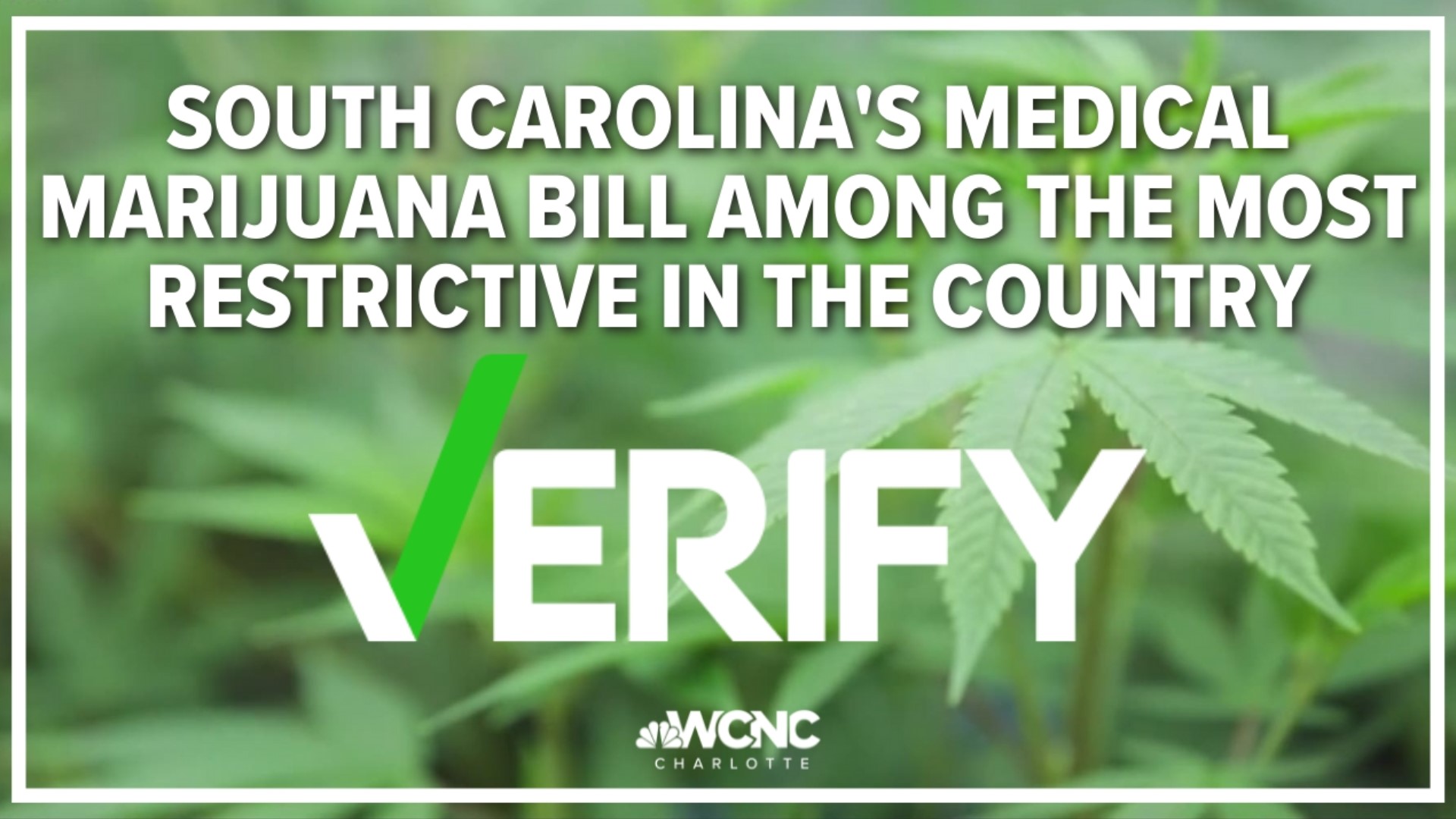COLUMBIA, S.C. — South Carolina lawmakers are inching closer to legalizing medical marijuana.
The Palmetto state would become the 38th state to do so.
But how does South Carolina's proposed program compare to other states?
In a recent House committee hearing, State Rep. Christopher Hart said, "This particular bill, out of all the states that currently have medical cannabis, is the most restrictive and has the most parameters, guidelines, guardrails in place."
So is that true?
THE QUESTION
Is South Carolina's medical marijuana bill one of the most restrictive in the country?
THE SOURCES
THE ANSWER
Yes, South Carolina's medical marijuana bill is one of the most restrictive in the country.
WHAT WE FOUND
It's important to keep in mind, as Hanson pointed out in an interview with WCNC Charlotte, it is difficult to compare legislation from state to state.
"These things are completely unique because they are crafted based on what they believe will work best for their state," Hanson said.
But there are key differences in South Carolina's proposal that point to how restrictive it is.
For example:
- The qualifying medical conditions list is very narrow
- Patients would not be able to smoke the product
- The flower version of medical marijuana is not permitted
- Physicians referring patients to medical marijuana would have to go through extra training
Hanson said pharmacist oversight is rare.
"It's even less common, with only a handful of states requiring a pharmacist to be involved, either at the beginning of the consult process, or being the actual one overseeing the program," Hanson said.
With now 37 states adopting some version of medical marijuana programs for their residents, Hanson said the latest states, like Mississippi and Alabama, have opted for stricter guidelines.
Each state is also moving at its own pace when it comes to passing medical marijuana legislation, according to Hansen.
"These things don't generally happen very quickly," Hanson said. "It's a very slow process. Each state's timing is different...so there could be a myriad of reasons why a bill isn't moving and changes get made along the way."
VERIFY is dedicated to helping the public distinguish between true and false information. The VERIFY team, with help from questions submitted by the audience, tracks the spread of stories or claims that need clarification or correction. Have something you want VERIFIED? Text us at 704-329-3600 or visit /verify.

